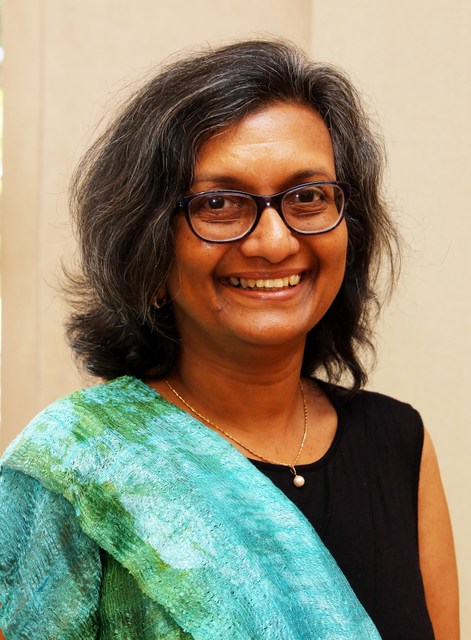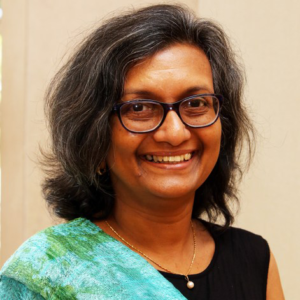
What do you think are the biggest issues facing your country’s care economy right now?
Sri Lanka has been hit by concurrent shocks over the past five years from the Easter Sunday bombings in 2019, followed by the pandemic, and then the economic crisis in 2023. These events have likely impacted dynamics within the care sector; within households, women are likely bearing a greater dual burden of paid employment and unpaid care. Women’s employment will also be key to increasing macroeconomic growth.
Unpaid caregiving continues to dominate Sri Lanka’s care economy and is a major driver of gender inequality, keeping women out of the labor force and limiting their career advancement while disrupting their economic security and wellbeing.
Sri Lanka also faces a rapidly aging population. Elderly people mainly live with their adult children, and like with childcare, the eldercare burden falls primarily on female family members.
What kind of change would you like to see in the next decade or so?
It is important that employers and policy makers understand the role of the reproductive sector in supporting the productive sector. Care work should be recognized as work and valuations pertaining to the unpaid care economy, and should be included in the system of national accounts. We are proud to be the first to have done valuations of care work for Sri Lanka, using the LFS (Labour Force Survey) and the NTUS (National Time Use Survey.
Additionally, we would like to see a change in the shape of the care diamond, with improvements in the quality, affordability and accessibility of childcare and eldercare services provided by the state and market, which would then reduce the burden on families and facilitate women’s ability to take up paid work outside the home.
What are the barriers to change?
The cultural norms associated with both the concept of care work and women’s roles continue to be a barrier to change. Care work is seen as a system where women work as caregivers and not as an act that provides monetary returns. Moreover, employers and policy makers alike think of care work as a domestic responsibility and do not understand its role undergirding the productive sphere.
In this context, a proliferation of useful data, research, and evidence can support advocacy efforts to influence policymakers to bring about meaningful reforms that seek to reduce and redistribute the burden of unpaid care work, particularly on women.
How do you think the research data and CGE models will help?
The research data will contribute to a better understanding of the strengths and vulnerabilities inherent in the Sri Lankan care diamond, filling in existing knowledge gaps. Additionally, the research data will help us to identify challenges in the paid and unpaid care sectors, particularly those introduced or exacerbated by the crisis.
CGE modelling will be useful in measuring the consequences of recovery policies on the care sector of Sri Lanka providing researchers with the tools to account for the needs of the care sector when designing adequate policy responses. The robustness of the CGE modelling technique and its acceptance among policymakers will be valuable in advocacy efforts.
Can you describe what you have done so far?
The team has utilized the National Time Use Survey and Labor Force Survey data conducted by the Sri Lankan Department of Census and Statistics to do a comprehensive economic valuation of the unpaid and paid care sectors of Sri Lanka. Additionally, we have completed a desk study that collates all available research from papers to statistics calculated from the datasets that describe and lay out the various components of the care diamond as it is currently understood. Our ongoing research agenda for work on the Sri Lankan care economy includes four focus group discussions (FGDs) in different regions of the country that will use an intersectional approach to understanding the challenges faced in the care sector, as well as a pilot survey of quantitative data collection to enable further research on the care economy.
Related Profiles
-

Dileni Gunewardena
Researcher

